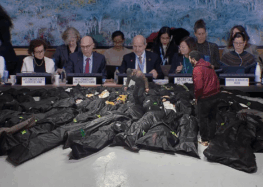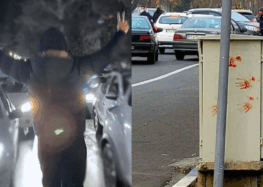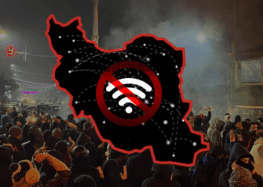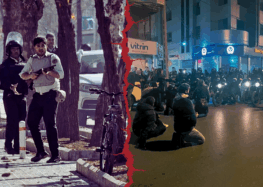Foreign Dignitaries Attending Rouhani’s Inauguration Should Demand Visit to Detained Opposition Leaders
 Solana and Eliasson Should Call for the Release of Mousavi, Karroubi, and Rahnavard
Solana and Eliasson Should Call for the Release of Mousavi, Karroubi, and Rahnavard
(July 31, 2013) Foreign dignitaries invited to attend the inauguration of Iran’s president-elect, Hassan Rouhani, should use the occasion to demand a visit to opposition leaders under house arrest, and publicly call for their immediate release, the Campaign for Human Rights in Iran said today.
According to the Iranian media, Javier Solana, former EU foreign policy chief, and Jan Eliasson, the deputy general-secretary of the United Nations, are among the foreign dignitaries who will attend Rouhani’s inauguration in Tehran on August 4.
Since February 14, 2011, former presidential candidates Mir Hossein Mousavi and Mehdi Karroubi, as well as Mousavi’s wife, Zahra Rahnavard, have been under house arrest, under the direct orders of Iran’s Supreme Leader, Seyed Ali Khamenei. There are serious concerns for their health as both Mousavi and Karroubi have recently been hospitalized.
“Just as Catherine Ashton required a meeting with Mohamed Morsi during her recent visit to Cairo, Solana and Eliasson should insist upon a meeting with Mousavi, Rahnavard, and Karroubi so that they can report on their condition to the outside world,” said Hadi Ghaemi, the Campaign’s executive director.
“Throughout the more than two-and-a-half years of their illegal house arrest, there has been no credible news of their condition. It is imperative for Solana and Eliasson to meet with them during their visit,” Ghaemi added.
During his election campaign, Rouhani repeatedly promised to seek the release of all prisoners of conscience as well as the release of opposition figures under house arrest.
According to Karroubi’s son, 76-year-old Mehdi Karroubi was hospitalized this week due to heart problems, arthritis, and urinary complications. He was released on July 31. Mousavi, who is 72 years old, also underwent treatment for heart problems and was hospitalized on July 2, 2013.
Mousavi, Karroubi, and Rahnavard have never been charged by Iran’s Judiciary.
Domestic pressure for releasing the former presidential candidates has been steadily building. Last week, Ali Motahari, a member of the Iranian Parliament, called for the lifting of Mousavi and Karroubi’s house arrest and the release of all prisoners of conscience during a speech in the Parliament.
In November 2011, Mohammad Javad Larijani, head of the High Council for Human Rights, said that the detainees had engaged in “illegal activities” and incited violence. He also said that no one could be placed under house arrest in Iran “without trial and without a court order,” and that the public would soon be informed of the charges against the detainees. More than a year later, during which no charges have been brought, Iran’s police chief, Esmaeel Ahmadi Moghaddam said on December 25, 2012, that the country’s Supreme Leader, Ayatollah Ali Khamenei, had approved the detention of the opposition figures in advance of their house arrest.
“This is an important opportunity for world leaders who meet with Iran’s new president to show that the international community cares about unlawful actions against political dissidents and is willing to push for change,” said Ghaemi. “We believe domestic and international pressure will make it easier for Rouhani to bring much needed improvements in the current human rights situation in Iran, as he promised during his presidential campaign.”






